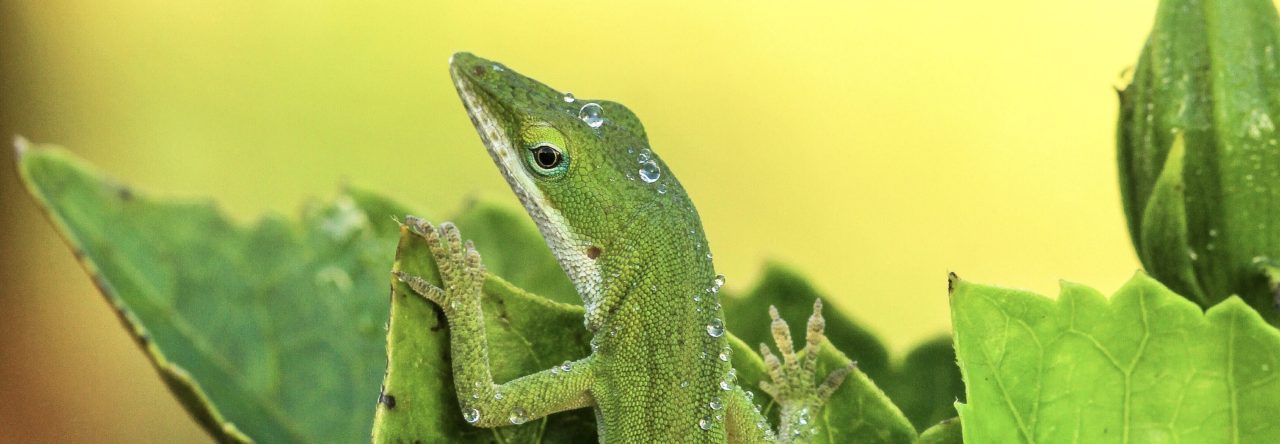Photo by Scott Hartley.
Details at Chipojolab.
Latest posts by Jonathan Losos (see all)
- Evolution in Real Time on Lizard Island - March 23, 2025
- Spider Snags Adult Anolis osa - March 22, 2025
- An Homage to the Green Anoles of New Orleans - March 21, 2025


Justin Sponholz
I know this doesn’t have really much to do with the photo but i’m sure the post can be erased anyways. I have a question though and after you read i’m sure you’ll understand why this picture made me think of this, and i’m very glad it did.
When I was little you used to be able to win anole’s at the local carnivals in stuff. The carny’s really didn’t have any concern for them, they’d be in a cage by the hundreds. This is during the early 90s. One summer brown anole’s started appearing with the greens as rewards.
Me & my dad won a juvenile brown anole and put him in with are other anole’s. One the big green males grabbed him by the head and didn’t let him go just held his head in his mouth for like 20-30 minutes at least. We tried to nurse him back but he died a feel days later.
It seemed like his eyes were sealed closed and like the skin on his head was melted. I took it to mind that their saliva was slightly acidic. Now I have somewhere I can ask professionals.
So there’s the question, is their saliva acidic and has there been any study into this?
That is a great picture as well!!
Rich Glor
I’m no expert on this particular matter and I don’t know of studies that have comprehensively investigated the composition of anole saliva. However, I think saliva is generally alkaline rather than acidic. Nevertheless, saliva in most animals also contains some digestive enzymes that may have contributed to the condition you observed. Perhaps most intriguingly, one study has reported the presence of venom toxins similar to those found in venomous snakes in the lizard clade to which anoles belong (Iguania). This study actually refers to the group of lizards (including anoles) and snakes that have venom toxins as the “venom clade.” I’m not aware of follow-up studies that have address the potential role of these toxins in anoles.
Justin Sponholz
Ty much Rich, for the reply and link, Interesting read! Pretty insightful. Now I wonder the cause for the 1st development of these venom glands. I love science, every read brings answers and new questions. lol